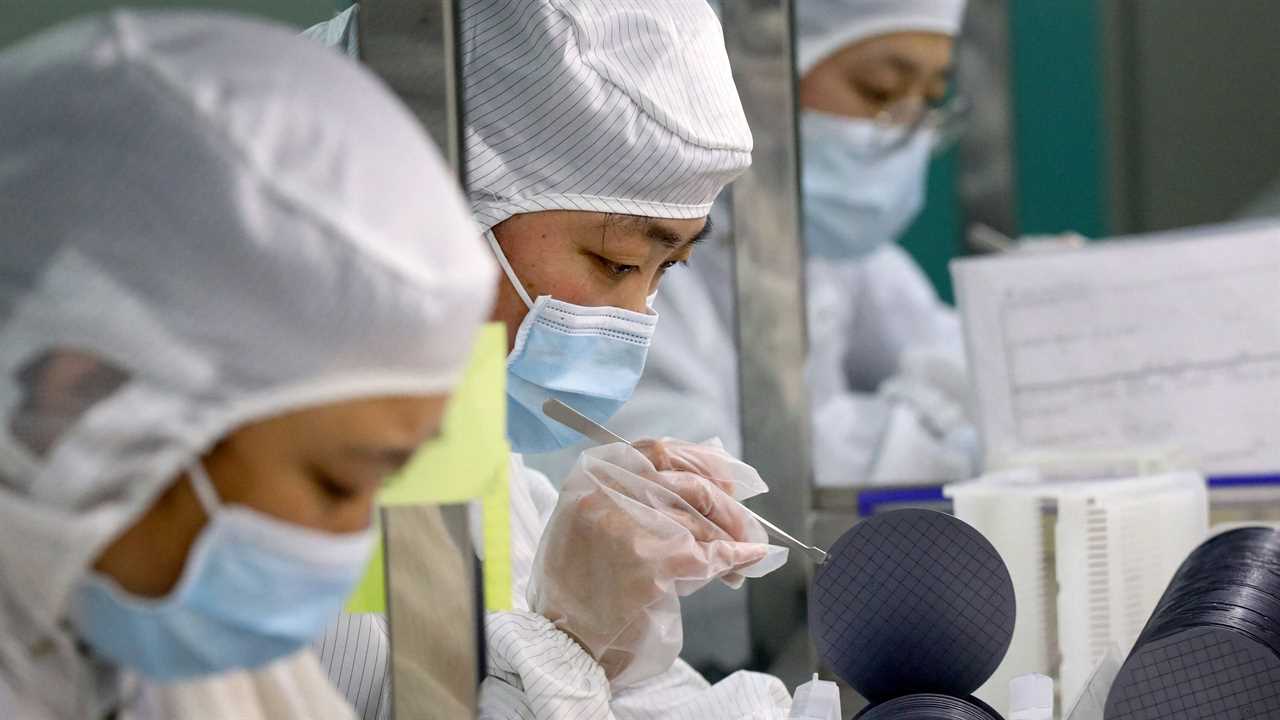
WASHINGTON — Biden administration officials and Democrats in Congress are pushing to revive stalled legislation that would pour billions of dollars into scientific research and development and shore up domestic manufacturing, amid deep differences on Capitol Hill about the best way to counter China and confront persistent supply chain woes.House Democrats unveiled a 2,900-page bill on Tuesday evening that would authorize $45 billion in grants and loans to support supply chain resilience and American manufacturing, along with providing billions of dollars in new funding for scientific research. Speaker Nancy Pelosi said in a statement that she hoped lawmakers would quickly begin negotiations with the Senate, which passed its own version of the bill last June, to settle on compromise legislation that could be sent to President Biden for his signature.But the effort faces obstacles in Congress, where attempts to sink significant federal resources into scientific research and development to bolster competitiveness with China and combat a shortage of semiconductors have faltered. The Senate-passed measure fizzled last year amid ideological disputes with the House and a focus on efforts to pass Mr. Biden’s infrastructure and social policy bills. For months, the competitiveness measure was rarely even mentioned, except perhaps by Senator Chuck Schumer, Democrat of New York and the majority leader, who has personally championed it.But facing a disruptive semiconductor shortage that has broken down supply chains and helped fuel inflation, Democrats are now vigorously pressing ahead on the bill. With Mr. Biden’s domestic agenda sputtering, the party is eager for a legislative victory, and top administration officials and lawmakers have said they hope to send a compromise bill to the president’s desk in a matter of months.“We have no time to waste in improving American competitiveness, strengthening our lead in global innovation and addressing supply chain challenges, including in the semiconductor industry,” Mr. Schumer said.Both the House bill and the one that passed the Senate last year would send a lifeline to the semiconductor industry during a global chip shortage that has shut auto plants and rippled through the economy. The bills would offer chip companies $52 billion in grants and subsidies with few restrictions.The measures would also pour billions more into scientific research and development pipelines in the United States, create grants and foster agreements between companies and research universities to encourage breakthroughs in new technologies, and establish new manufacturing jobs and apprenticeships.“The proposals laid out by the House and Senate represent the sort of transformational investments in our industrial base and research and development that helped power the United States to lead the global economy in the 20th century,” Mr. Biden said in a statement. “They’ll help bring manufacturing jobs back to the United States, and they’re squarely focused on easing the sort of supply chain bottlenecks like semiconductors that have led to higher prices for the middle class.”ImageThe semiconductor shortage has disrupted the economy, broken down supply chains and helped fuel inflation.Credit...Sarahbeth Maney/The New York TimesLawmakers will still need to overcome differing views in the House and Senate over how best to take on China and, perhaps more crucially, how to fund the nation’s scientific research.“There are disagreements, legitimate disagreements,” Gina Raimondo, the commerce secretary, said in an interview. “How do we do this? How do we get it right? There doesn’t seem to be much disagreement over the core $52 billion appropriation for chips. There is disagreement around how we make investments in research and development in basic science.”One major difference is that while the Senate bill invests heavily in specific fields of cutting-edge technology, such as artificial intelligence and quantum computing, the House bill places few stipulations on the new round of funding, other than to say that it should go toward fundamental research.In a memo on the legislation, House aides wrote that their measure was “focusing on solutions first, not tech buzzwords.”Some experts argue that approach lacks urgency. Stephen Ezell, the vice president for global innovation policy at the Information Technology and Innovation Foundation, a policy group that receives funding from telecommunications and tech companies, called the House bill “not sufficient to enable the United States to win the advanced technology competition with China.” He argued that the focus on advanced technology in the Senate-passed bill would do more to increase American competitiveness.How the Supply Chain Crisis Unfolded
Card 1 ofBy: Catie Edmondson
Title: Democrats Renew Push to Pass Industrial Policy Bill to Counter China
Sourced From: www.nytimes.com/2022/01/26/us/politics/democrats-china-competitiveness-bill.html
Published Date: Wed, 26 Jan 2022 23:33:50 +0000
Read More
Did you miss our previous article...
https://badpoliticians.com/us-politics/stewart-rhodes-oath-keepers-leader-is-denied-bail-on-a-sedition-charge
 UK PoliticsWorld PoliticsVideosPrivacy PolicyTerms And Conditions
UK PoliticsWorld PoliticsVideosPrivacy PolicyTerms And Conditions
